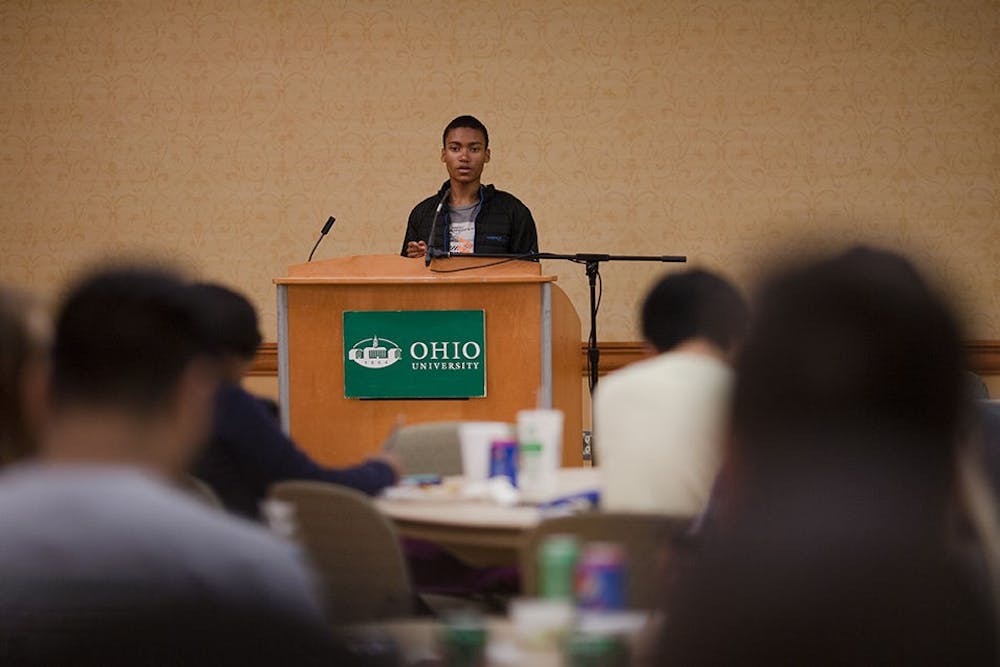Multiple minority students and faculty shared their personal stories of overcoming oppression and stereotypes while living in America.
Hashim Pashtun, president of the International Student Union, spoke Tuesday night about how his identity has caused him trouble while living in America.
“Growing up as an Afghan and Muslim is something that doesn’t suit well in America,” Pashtun, a graduate student studying civil engineering, said.
Pashtun was one of several speakers at the Ohio University Hispanic and Latino Student Union's final event for Hispanic Heritage Month, "Cual es tu Historia?," who shared their stories about overcoming cultural hardships in America.
Nearly 20 students gathered on the second floor of Baker Center to hear the personal stories of students and faculty who have battled with problems of oppression and stereotypes while living in America.
Diana Chaidez, treasurer of the organization, said the event was meant to advocate and bring awareness to students for some of the obstacles that minority students face.
“The (event) is that people who migrate here from different cultures and ethnicities still face different types of social injustices,” Chaidez, a junior studying psychology, said. “We wanted to create awareness so people can see that their stories are important.”
Carla Triana, president of the organization, said she was happy to hear and learn about the history of those who shared their stories.
“It was nice hearing everybody’s stories and, like, what made them the person they are now,” Triana said.
During her speech, Chaidez discussed how growing up in a “very American background” led to other Hispanic students teasing her about not knowing Hispanic culture, which prompted her mother to offer some advice.
“Culture isn’t necessarily the little things that define it, so, like, listening to Spanish music or eating Mexican food. It’s about being hardworking, it’s about caring for your family,” Chaidez said. “It’s about being yourself, and that’s sort of what she taught me what culture was.”
delfin bautista, director of the OU LGBT Center, who uses they/them pronouns, discussed in their story why it’s important to talk about minorities and their histories in America.
“We just can’t limit students to just one aspect of who they are because we’re not recognizing them as whole people,” bautista, who uses the lowercase spelling of their name, said.
In their story, bautista said seeing Latino custodians working at Yale University, while bautista was a student there, helped them understand the importance of acknowledging the past.
“They’re the people whose shoulders we stand on,” bautista said. “Just honoring all of those folks, … the Latinos who fought to be accepted at Yale, … they fought for a student like me to graduate one day, and it’s just an opportunity to honor that.”
Pashtun said the advice he received from his mother about understanding and using his identity helped motivate him to live out his life.
“You get only the window of 60 to 80 years to live in this world and stay alive. But what you can do is mark your identity or leave your name for the future for thousands of years so people can remember you,” Pashtun said. “Do whatever you think you can (to) leave a good name and a better place when you joined it.”






